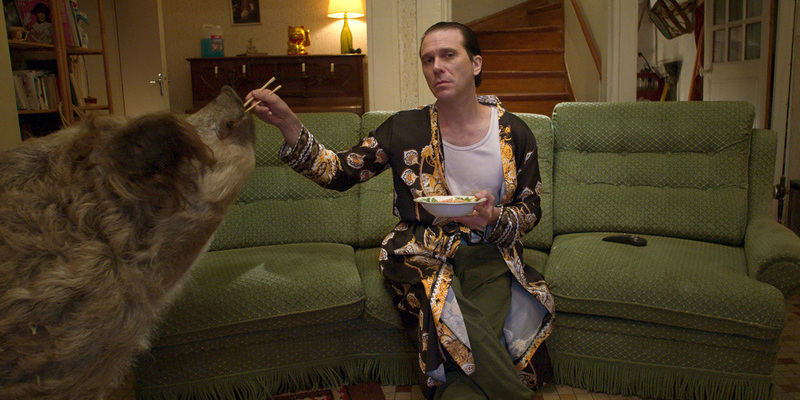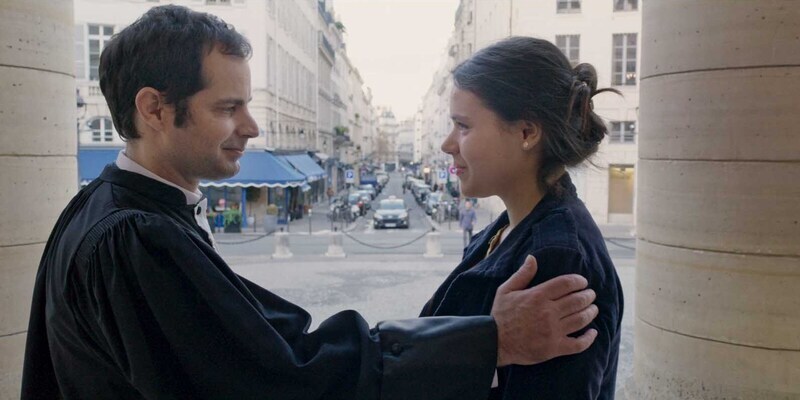
Review by
Eric Hillis
Directed by: Jean-Christophe Meurisse
Starring: Alexandre Steiger, Lorella Cravotta, Olivier Saladin, Lilith Grasmug, Christophe Paou, Denis Podalydès

With his third film, Bloody Oranges, director Jean-Christophe Meurisse delivers a caustic state of
the nation address to his native France. As in most western countries,
the culture wars have split France in two like the blade of a
guillotine. No social gathering - be it the judging of a dance contest,
post-coital chit chat or a family birthday dinner - is free from
politics entering the conversation, something Meurisse mines for some
effective Larry David-esque comic sequences.

Imagine if Pulp Fiction had been written by Todd Solondz
and you'll have some idea of what's in store here. Meurisse introduces
us to a variety of characters whose lives will ultimately intersect with
disastrous consequences. An elderly couple (Lorella Cravotta and
Olivier Saladin) enter a provincial rock n' roll dance contest in
the hope that they can use the prize money to pay off their crippling
debts. Their son Alexandre (Alexandre Steiger) is a cynical,
social climbing lawyer whose latest client is France's Secretary of
Finance (Christophe Paou), whose ferreting away of funds in an
offshore account is under threat of exposure by a journalist. A teenage
girl (Lilith Grasmug) prepares to lose her virginity at an
upcoming party by visiting a gynaecologist (Blanche Gardin) who
mourns the ravages of time on her own genitalia. An oddball lives on a
farm, casually sharing his Chinese takeaway with a wild boar in his
living room. Like the recent similarly themed Hungarian ensemble black
comedy
Treasure City, a taxi driver circles the outskirts of the narrative.

In its opening acts Bloody Oranges plays almost like a
comedy sketch show. Characters appear in vignettes, not unlike the
recent films of Roy Andersson, and it's only later in the film that the
connections between the various players are revealed. Much of the humour
is at the expense of neoliberalism, with one particularly cutting scene
involving a meeting of politicians seeking a way to cut their budget by
portraying single mothers, students, immigrants et al as scroungers.
Elsewhere we see how this mentality has infected the wider public as a
debate is held by the judges of a dance contest over whether or not to
award a disabled contestant for simply participating.

It's in the final act that Bloody Oranges takes a turn
into some very dark territory. It's often asked whether the male rape
scene in Pulp Fiction would make it into a movie today and
whether it would have the same comic impact.
Bloody Oranges provides an answer by including a similar
scene that manages to be both deeply disturbing and undeniably
hilarious. Another taboo that I can't mention for the sake of spoilers
is similarly played effectively for laughs, though its denouement is so
unabashedly romantic that Meurisse can't be accused of being nothing
more than a cynical shock merchant. Meurisse clearly has contempt for
the people currently in charge of his country, but his affection for
those trying to keep their heads above water is clear to see.

